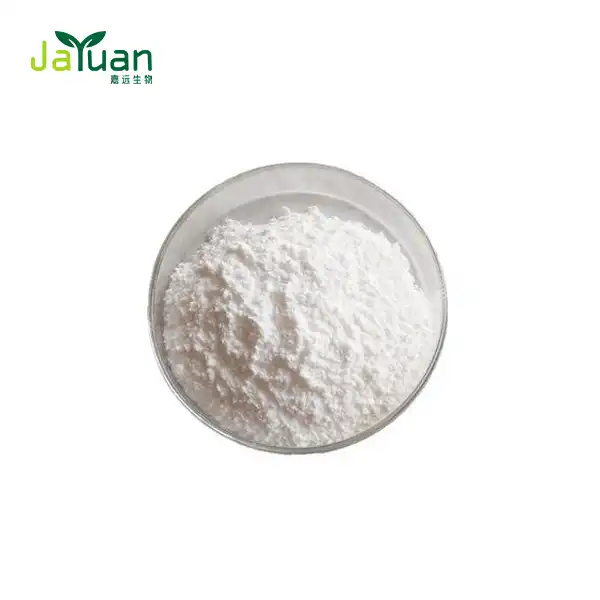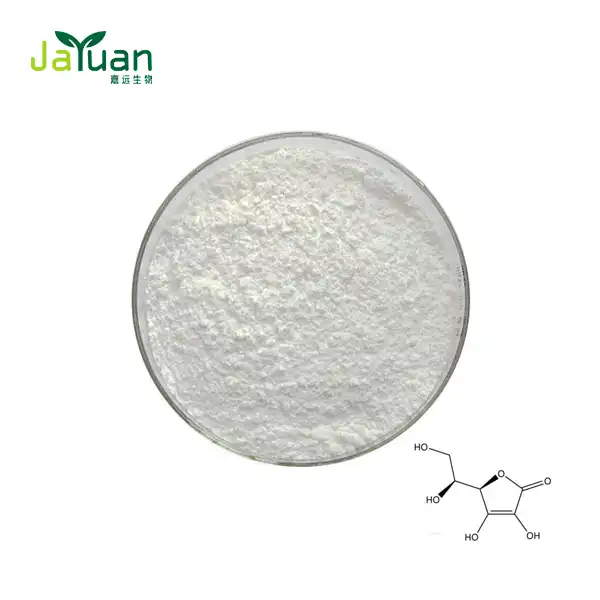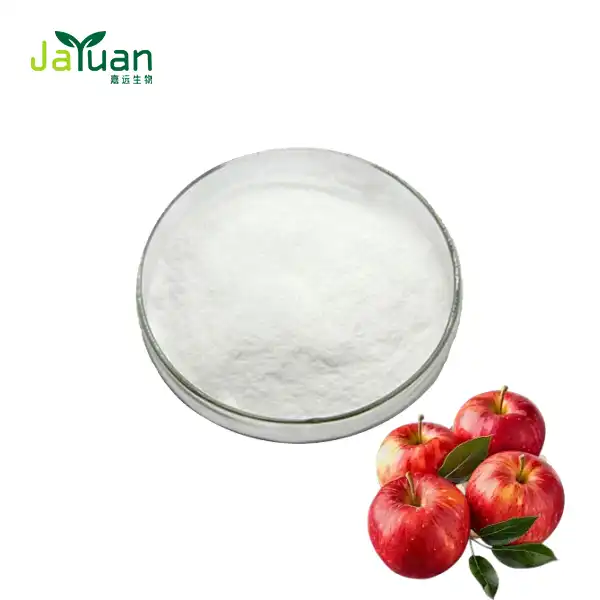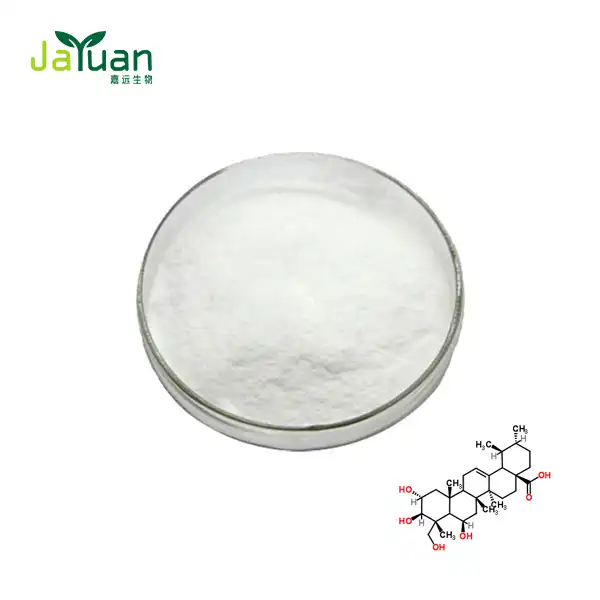Can abalone peptides improve skin moisture retention?
In the ever-evolving world of skincare, abalone peptides have emerged as a promising ingredient for enhancing skin moisture retention. These marine-derived compounds are gaining attention for their potential to hydrate, nourish, and protect the skin. This article delves into the science behind abalone peptides and explores their effectiveness in improving skin hydration and overall skin health.

How do abalone peptides enhance skin hydration levels?
Abalone peptides are derived from the protein-rich meat of abalone, a type of marine mollusk. These peptides are composed of short chains of amino acids that can penetrate the skin's surface and provide numerous benefits. When it comes to enhancing skin hydration levels, abalone peptide powder works through several mechanisms:
- Humectant properties: Abalone peptides act as humectants, attracting and binding water molecules to the skin. This helps to increase the skin's moisture content and maintain hydration levels throughout the day.
- Stimulation of natural moisturizing factors (NMFs): These peptides can encourage the production of NMFs in the skin, such as hyaluronic acid and ceramides. NMFs are crucial for maintaining the skin's moisture balance and preventing dehydration.
- Collagen synthesis: Abalone peptides have been shown to stimulate collagen production in the skin. Collagen not only provides structural support but also helps to retain moisture, contributing to a plumper, more hydrated appearance.
- Antioxidant activity: The antioxidant properties of abalone peptides protect the skin from free radical damage, which can lead to moisture loss and premature aging.
By incorporating abalone peptides into skincare formulations, manufacturers can create products that offer deep, long-lasting hydration. Users may notice improvements in skin texture, suppleness, and overall moisture content with regular use of abalone peptide-infused products.
Abalone peptides and hyaluronic acid synergy for moisture retention
While abalone peptides are impressive on their own, their moisture-retaining capabilities can be further enhanced when combined with other hydrating ingredients, particularly hyaluronic acid. This synergistic relationship creates a powerhouse of hydration that can significantly improve skin moisture retention.
Here's how abalone peptides and hyaluronic acid work together:
- Complementary hydration mechanisms: Abalone peptides attract water to the skin's surface, while hyaluronic acid can hold up to 1000 times its weight in water. Together, they create a multi-layered approach to hydration.
- Enhanced penetration: The small molecular size of abalone peptides may help improve the penetration of hyaluronic acid into deeper layers of the skin, maximizing its hydrating effects.
- Prolonged moisture retention: The combination of these two ingredients can help create a moisture-locking effect, preventing water loss and maintaining hydration for extended periods.
- Improved skin barrier function: Both ingredients contribute to strengthening the skin's natural barrier, which is essential for preventing moisture loss and maintaining optimal hydration levels.
Skincare products that combine abalone peptide powder with hyaluronic acid offer a comprehensive solution for those seeking intense, long-lasting hydration. This powerful duo can address various skin concerns related to dehydration, including fine lines, dullness, and rough texture.

Do abalone peptides strengthen the skin barrier function?
The skin barrier, also known as the stratum corneum, plays a crucial role in maintaining skin health and hydration. A strong, intact barrier helps prevent moisture loss and protects against environmental stressors. Abalone peptides have shown promising results in strengthening this vital skin function.
Here's how abalone peptides contribute to improving skin barrier function:
- Lipid synthesis: Abalone peptides can stimulate the production of lipids, which are essential components of the skin barrier. These lipids help to seal in moisture and create a protective layer on the skin's surface.
- Cell turnover regulation: These peptides may help regulate the process of cell turnover, ensuring a healthy balance of skin cells in the stratum corneum. This contributes to a more robust and effective barrier.
- Anti-inflammatory properties: By reducing inflammation, abalone peptides can help maintain the integrity of the skin barrier, preventing damage that could lead to increased water loss.
- Antioxidant protection: The antioxidant capabilities of abalone peptides protect the skin barrier from oxidative stress, which can weaken its structure and function.
By incorporating abalone peptides into their skincare routine, users may experience improvements in their skin's ability to retain moisture, resist environmental damage, and maintain overall health. A strengthened skin barrier not only enhances hydration but also contributes to a more resilient, youthful-looking complexion.
Conclusion
Abalone peptides offer a multi-faceted approach to improving skin moisture retention. From enhancing hydration levels and working synergistically with hyaluronic acid to strengthening the skin barrier function, these marine-derived compounds present an exciting option for those seeking to improve their skin's moisture content and overall health.
As research continues to unveil the benefits of abalone peptides in skincare, we can expect to see more innovative products harnessing the power of these remarkable compounds. For those looking to revitalize their skincare routine and achieve a more hydrated, radiant complexion, products containing abalone peptides are certainly worth considering.
Are you interested in incorporating abalone peptides into your skincare formulations? Xi'an Jiayuan Bio-Tech offers high-quality abalone peptide powder for your product development needs. Contact us at sales@jayuanbio.com, sales1@jayuanbio.com to learn more about our products and how we can support your skincare innovation journey.
References
1. Kim, S. K., & Wijesekara, I. (2010). Development and biological activities of marine-derived bioactive peptides: A review. Journal of Functional Foods, 2(1), 1-9.
2. Wang, L., An, X., Yang, F., Xin, Z., Zhao, L., & Hu, Q. (2008). Isolation and characterisation of collagens from the skin, scale and bone of deep-sea redfish (Sebastes mentella). Food Chemistry, 108(2), 616-623.
3. Gómez-Guillén, M. C., Giménez, B., López-Caballero, M. E., & Montero, M. P. (2011). Functional and bioactive properties of collagen and gelatin from alternative sources: A review. Food Hydrocolloids, 25(8), 1813-1827.
4. Zhuang, Y., Hou, H., Zhao, X., Zhang, Z., & Li, B. (2009). Effects of collagen and collagen hydrolysate from jellyfish (Rhopilema esculentum) on mice skin photoaging induced by UV irradiation. Journal of Food Science, 74(6), H183-H188.
5. Mahmood, K., & Zia, K. M. (2019). Hyaluronic acid-based hydrogel for biomedical applications: A review. International Journal of Biological Macromolecules, 132, 1200-1221.
6. Tessema, E. N., Gebre-Mariam, T., Neubert, R. H. H., & Wohlrab, J. (2018). Potential applications of phyto-derived ceramides in improving epidermal barrier function. Skin Pharmacology and Physiology, 31(5), 279-287.







